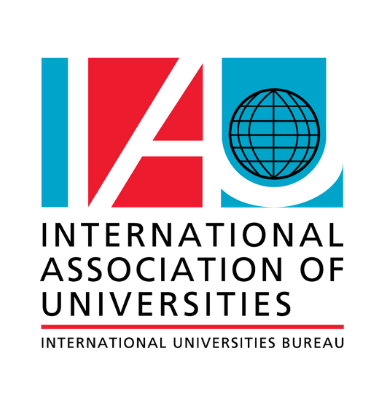


Malta
Types of HEIs
1 : Università : University
2 : Institute
3 : College
Pre-Higher Education System
entry:5
exit:16
Pre-Primary : Kindergarten
Age level from:3
Age level to:5
Primary : Primary School
Length of program:6
Age level from:5
Age level to:11
Secondary : Secondary School
Length of program:5
Age level from:11
Age level to:16
Certificate/Diploma awarded at end:Secondary Education Certificate (SEC)
Higher Secondary :
Length of program:2
Age level from:16
Age level to:18
Certificate/Diploma awarded at end:MATSEC (Matriculation Certificate)
Schools are divided into two categories: state and private (church or independent) schools. State schools are free to all students. Attending school is compulsory up to the age of 16. Higher secondary prepares students for admission into university, as students sit the Matriculation Certificate (MATSEC) exam.
Higher Education System
Public higher and further education in Malta consists of one university (the University of Malta) and several colleges, post-secondary schools and institutes. Education at tertiary level is publicly funded and is free, and sudents receive a stipend as well as an allowance for academic-related expenditure. In addition to public institutions, there exist private higher and further education institutions.
Education Act, Revised (2021)
Legal Notice 261 (2013)
Description:National Commission for Further and Higher and Higher Education Order
Legal Notice 296 (2012)
Description:Further and higher education (licensing, accreditation and quality assurance) regulations
Education (Amendment) Act (2012)
Education Act (1988)
Description:Chapter 327 - Higher education
Maltese, English
Non-university level
Description:Vocational education may take the form of apprenticeships, as well as studies at different vocational institutions in Malta, such as the Institute of Tourism Studies (ITS), the Malta College of Arts, Science and Technology (MCAST) or the Malta Centre for Restoration.
University level first stage : Bachelor's degree
Description:The Bachelor's degree is obtained in three to four years (180-240 ECTS credits), depending on the field of study.
University level second stage : Master's degree/ Postgraduate diploma
Description:The second stage leads to the award of a Master's degree after 1 to 2 years' study (90-120 ECTS credits) or a Postgraduate diploma after a period of one year of study (60 ECTS credits).
University level third stage : Doctorate
Description:The third stage leads, after at least three years of study following the award of a Master's degree, to the Doctorate. Candidates are required to submit a thesis after a period of research on an approved topic.
Lecturers must hold a degree at Doctoral level. The University may also appoint promising candidates as Assistant Lecturers.
ERASMUS
Bodies
Ministry for Education, Sport, Youth, Research and Innovation
Street:Great Siege Road
City:Floriana
PostCode:VLT 2000
Contacts:- Clifton Grima (Head), Job title : Minister
- Matthew Vella (Senior Administrative Officer), Job title : Permanent Secretary
Malta Further and Higher Education Authority - MFHEA
Role:The MFHEA was officially launched in January 2021 and is legislated by the revised Education Act which came into force on the 1st January 2021. Its mission is to foster the development and achievement of excellence in further and higher education in Malta through research, effective licensing, accreditation, quality assurance, and recognition of qualifications established under the Malta Qualifications Framework. MFHEA succeeds the National Commission for Further and Higher Education.
Street:Triq J Abela Scolaro
City:Hamrun
PostCode:HMR 1304
www:https://mfhea.mt
Contacts:Rose Anne Cuschieri (Head), Job title : Chief Executive Officer
Malta Qualifications Recognition Information Centre - MQRIC
Role:MQRIC, which was set up in 2002 and which is now part of the National Commission for Further and Higher Education, deals with the recognition and comparability of both academic and vocational qualifications, MQRIC co-ordinates the different agencies and authorities which are entitled to evaluate and award credentials and licenses.
Recognition for institution:unknown
Recognition for profession:unknown
Street:c/o NCFHE Triq J Abela Scolaro
City:Hamrun
PostCode:HMR 1304
www:https://mfhea.mt/academic-qualifications
Contacts:Stefan Sant (Senior Administrative Officer), Job title : Head, Malta Qualifications Recognition Information Centre
MATSEC
Minimum mark:C
Requirement for:All programmes except Medicine and Surgery
Alternative qualifications are considered if comparable. In the case of students over 23, applicants are interviewed and assessed by the faculty concerned.
Definition:A foreign student is a student who does not hold Maltese citizenship.
Admission Requirements:Foreign students must have qualifications equivalent to the Matriculation Certificate, such as the General Certificate of Education at Advanced (A) levels, the International Baccalaureate and the American Advanced Placement System.
Quotas:Quotas are in places in Medicine for foreign applicants.
Language Proficiency:A good knowledge of English is essential. The University of Malta provides a foundation studies course and a pre-sessional language course prior to entry to a regular course of study.
Entry Regulations:Foreign students must have an entry permit and financial guarantees if they are staying for more than three months. Application to Individual Institution:YesRecognition of Studies
The Malta Further and Higher Education Authority (MFHEA) is responsible for licensing, accreditation and quality assurance for further and higher education institutions in Malta. The University of Malta, the Malta College for Arts, Science and Technology and the Institute of Tourism Studies are self-accrediting providers.
Malta Qualifications Recognition Information Centre (MQRIC) deals with the recognition of foreign qualifications.
For Access to Non-University Post-Secondary Studies:Professional qualifications may also need to be evaluated by the relevant professional body empowered to issue the necessary warrant.
For Access to University Level Studies:Nationals and foreigners are given the same treatment.
Convention on the Recognition of Studies, Diplomas and Degrees concerning Higher Education in the States belonging to the Europe Region. Paris, 21 December 1979 (1983)
Student Life
Is there social security:Yes
Is there social security:Yes
Details:Health coverage is free at government health centres and State hospitals.
By Road:Yes
By Air:Yes
Credentials
Secondary Education Certificate
Description:The secondary education certificate is awarded at the end of 11 years of compulsory education. Students who wish to continue their studies for a further two years to prepare for the Matriculation Certificate must hold the Secondary Education Certificate in at least six subjects, including Maltese, English Language, Mathematics and either Biology, or Chemistry or Physics.
Acronym:SEC
MATSEC
Description:The MATSEC (matriculation certificate) is awarded to students who have followed a two-year post-secondary course in six subjects, two of which taken at Advanced Level, three at Intermediate Level and in Systems of Knowledge. Students are required to obtain a pass mark in subjects taken from specified groups of subjects (a language, a science subject and a humanistic subject) and obtain an overall pass mark in order to be awarded the Matriculation Certificate. Award of the Matriculation Certificate satisfies the general entry requirements for admission to the University of Malta.
Bachelor's Degree
Description:Terminal first cycle qualification awarded after three to four years of study.
Credential required for entry:MATSEC
Type of institution where credential is offered:Università (University)
Institute
Postgraduate Diploma
Description:Terminal second cycle qualification awarded after one academic year of study following the Bachelor's degree.
Credential required for entry:Bachelor's Degree
Type of institution where credential is offered:Università (University)
Master's Degree
Description:Terminal second cycle qualification awarded after one to two years' full-time study following the Bachelor's degree.
Credential required for entry:Bachelor's Degree
Type of institution where credential is offered:Università (University)
Doctorate
Description:The Doctorate is conferred after three years' research work and is awarded upon the successful defence of a thesis containing original and significant contributions to knowledge in one of the disciplines studies at the University.
Credential required for entry:Master's Degree
Type of institution where credential is offered:Università (University)
Data Provided by
From:2019
To:2020
IAU from the website of the Ministry for Education and Employment and www.enic-naric.net, May 2020. Bodies updated October 2023.
Updated on 15-05-2020
